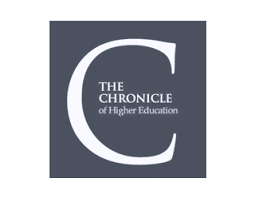
Backers of an Audit Model for Judging Education Quality Invite Feedback
The Chronicle of Higher Education
Backers of an Audit Model for Judging Education Quality Invite Feedback
Apush to augment and perhaps eventually replace traditional accreditation with an approach that calls for independent third parties to audit the implicit and explicit promises made by education organizations is moving forward.
The organizers of one effort publicly released this month a 22-page outline for how such a proposed system would work, with specific definitions of how matters like completion rates, student learning, and “stakeholder satisfaction” should be measured and verified. The proposal also includes definitions for measuring the job-placement rates and earnings of students once they have graduated or left their education programs.Quality-assurance standards for those five areas were devised by an ad hoc group of more than two dozen interested parties who work at colleges, coding boot camps, and education-policy organizations. The group, convened by Entangled Solutions, a consultancy, is now inviting people in all walks of postsecondary education to weigh in on the ideas via a web page.
The group’s proposal comes as members of Congress, and others, continue to debate whether the current system of accreditation works, and while the U.S. Department of Education continues to support an experiment, known by its acronym Equip, that will test new models of quality assurance.
Entangled Solutions’ proposal outlines specific ways to define, calculate, and evaluate results in each of the five areas. For example, under its standard for learning, it says every program not only should have clearly articulated learning outcomes and goals but also “ideally should include statements of what students can do with the knowledge and skills.”
For the standard on completion rates, it specifies that education providers not only measure full-time and part-time students separately, but, when sample sizes are large enough, also report results based on socioeconomic status, race, gender, and students’ prior educational attainment. The specificity is important, said Michael Horn, a principal consultant at Entangled Solutions who has worked closely on the project, because that will make it easier for potential students to see how others like them have fared in such programs.
While the group says it hopes eventually to apply its standards and its approach across higher education, it acknowledges that the scope of the initial proposal is best suited for coding boot camps and other unaccredited, nontraditional education providers. Mr. Horn noted, for example, that the measurement standard for placement outcomes might not be all that applicable to colleges whose goal is to help students get into graduate school.
But for new kinds of education providers, and for institutions that serve large populations of students not currently reflected in federal education data, it could be useful, Mr. Horn said. “If you’re not serving a lot of first-time, full-time students, I think this will be a welcome home for people,” he said. He also hopes, he said, that traditional accreditors will consider using the standards when they’re called upon to evaluate things like a college’s competency-based education program.Adhering to the proposed approach, however, could be costly and time-consuming, particularly for colleges and universities with hundreds of degree programs and other offerings. As now written, the proposal calls for third-party auditors to conduct full annual audits of the standards for any program with revenues of at least $5 million a year.
Mr. Horn said neither the ad hoc group nor Entangled Solutions plans to become an accreditor or third-party evaluator for the standards. But once the standards are finalized, they do plan to create a nonprofit organization to maintain and oversee the evolution of the standards over time, along the lines of the bodies that now oversee accounting standards.
